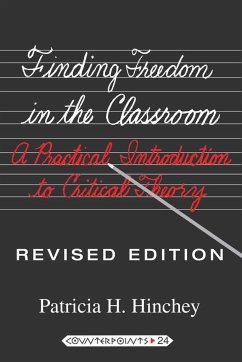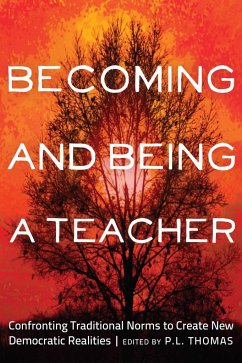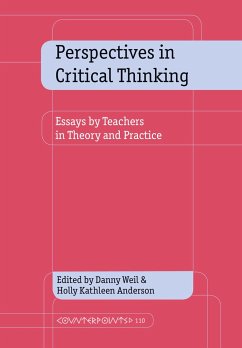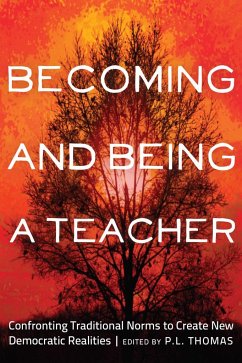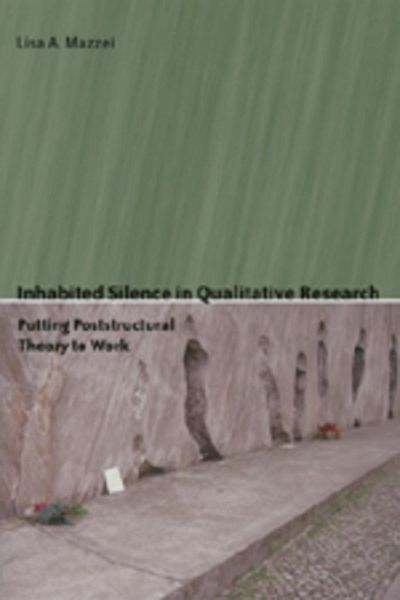
Inhabited Silence in Qualitative Research
Putting Poststructural Theory to Work
Versandkostenfrei!
Versandfertig in 6-10 Tagen
36,55 €
inkl. MwSt.

PAYBACK Punkte
0 °P sammeln!
Inhabited Silence in Qualitative Research demonstrates, or «puts to work,» poststructural theory in the doing of qualitative research. Using this theoretical approach, the book proposes a data set lacking in the methodological literature, namely silence. It highlights the need for qualitative researchers not to dismiss silence as an omission or an absence of empirical materials, but rather to engage silence as meaningful and purposeful. This is an important book that should be read by researchers, teachers, and students.










